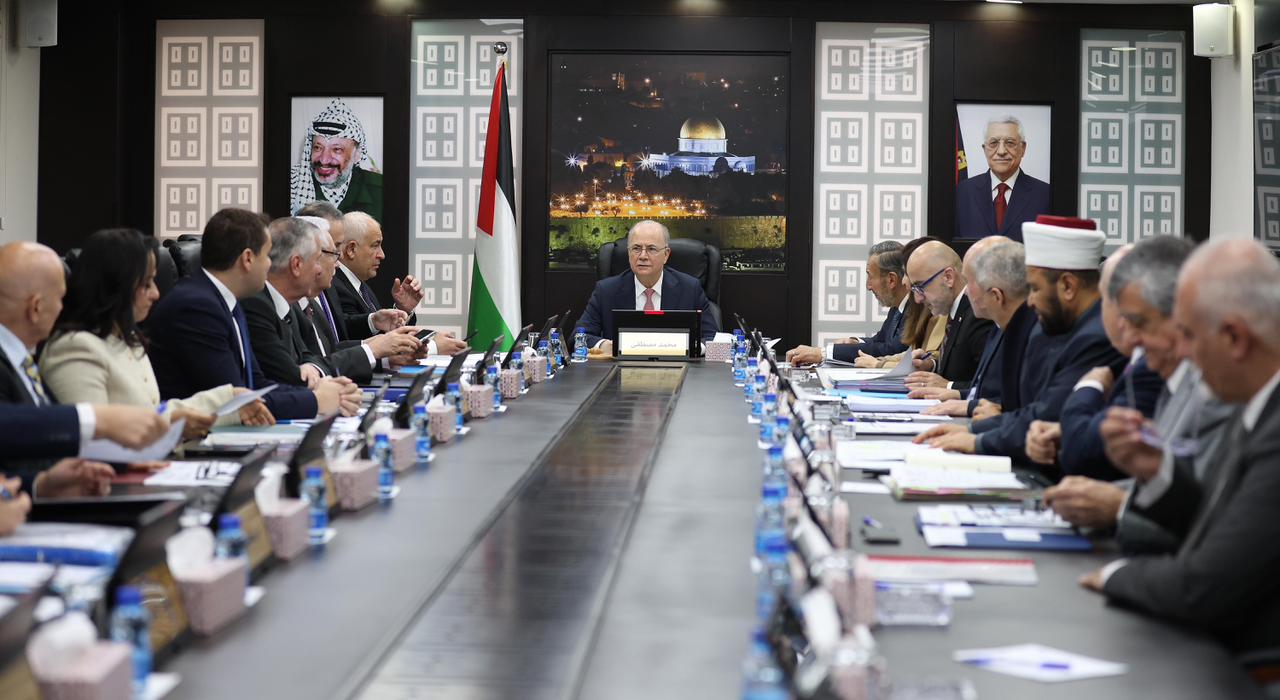RAMALLAH, November 27, 2025 (WAFA) – The Government Operations Room for Emergency Interventions in the Gaza Strip reviewed today, Wednesday, the executive relief and early recovery plan of the Ministry of Justice in the Gaza Strip. The session brought together representatives of UN agencies, international organizations, and national partners to discuss urgent needs and required interventions to restore the justice system following the extensive destruction inflicted on judicial and institutional structures during the war.
Opening the meeting, Samah Hamad, head of the Operations Room, emphasized that rebuilding the justice sector is a fundamental pillar for restoring social stability, protecting rights, and rebuilding public trust in state institutions. She stressed that the success of the plan depends on strong national and international cooperation, as well as urgent financial and technical support to enable the sector to resume its essential role in upholding justice and the rule of law in Gaza.
The Ministry also explained that restoring the justice system requires establishing temporary infrastructure, including mobile judicial and administrative facilities across all governorates. It highlighted the main challenges, including the loss of archives and data, the emergence of new war-related cases such as property, custody, and inheritance disputes, differing legal frameworks between Gaza and the West Bank, the rise of post-dispute cases, and weak institutional coordination prior to the war.
The Minister then presented a comprehensive vision for rebuilding a unified and capable justice sector grounded in the rule of law and the protection of rights. The vision includes developing a flexible and transparent legal framework tailored to post-war needs, reconstructing judicial infrastructure, strengthening mechanisms to protect vulnerable groups, and establishing a transitional justice system to address the impacts of violence, promote accountability, and support community reconciliation. He also outlined four priority pillars: developing laws and policies, activating mediation and alternative dispute resolution mechanisms during the period of limited court functionality, formulating a transitional justice strategy, and conducting a comprehensive assessment of capacities, resources, and gaps in the justice sector.
He noted that work is already underway to implement priority actions for restoring justice services, in close coordination with key justice institutions: the Judicial Council, Public Prosecution, Sharia Judiciary, and Bar Association, as well as international development partners and donor countries.
The Ministry of Justice highlighted that several critical interventions are already in progress during the relief and early recovery phase, including organizing hosting agreements for displaced families to protect property rights and prevent land disputes; issuing criminal record certificates; launching the National Database for Missing Persons on the Ministry’s website; and continuing to issue civil documents for displaced families through the Bar Association in coordination with the Ministry of Interior. Civil society organizations are also supporting community-based dispute resolution mechanisms—particularly for women—while Sharia courts continue to process marriage and related transactions with the limited means available.
The Ministry added that reactivating the justice system requires establishing temporary mobile judicial and administrative facilities across all governorates. It also outlined major challenges, including loss of archives and data, emerging aggression-related cases (property, custody, inheritance), differences in legislation between Gaza and the West Bank, the rise in post-aggression disputes, and weak institutional communication prior to the aggression.
The Operations Room urged citizens to follow updates and awareness guidance that will be issued in cooperation with the Ministry of Justice in the coming days regarding protecting rights and following up on legal cases. Special attention will be dedicated to women, who face heightened challenges in securing their rights under the harsh conditions imposed by the aggression. A comprehensive awareness campaign will soon be launched to clarify legal procedures, follow-up mechanisms, and provide answers to commonly asked questions, ensuring that accurate information reaches affected families—particularly women.
The Minister of Justice announced the formation of the National Team for Missing Persons Affairs and confirmed Palestine’s formal accession to the International Commission on Missing Persons (ICMP). He stressed that this step is of exceptional significance given that more than ten thousand Palestinians are currently missing in Gaza, and that international cooperation through the Commission is essential for supporting families’ rights to truth, justice, and the identification of their loved ones. He also urged citizens in Gaza to register on the Missing Persons Platform launched by the Ministry, to ensure data documentation,
Protect rights, and accelerate search and follow-up procedures.
The Ministry of Justice called for urgent technical and operational support from partners, including international experts in transitional justice and mediation, vehicles and equipment for mobile court units, digital solutions for rebuilding data systems, and ensuring secure access for field teams.
In conclusion, the Government Operations Room affirmed that rebuilding the justice sector is essential for restoring social stability and strengthening the rule of law. It stressed the need for urgent financial and technical support from international partners to ensure the reactivation of the justice system and enable it to fulfill its role in serving citizens.
Y.S











